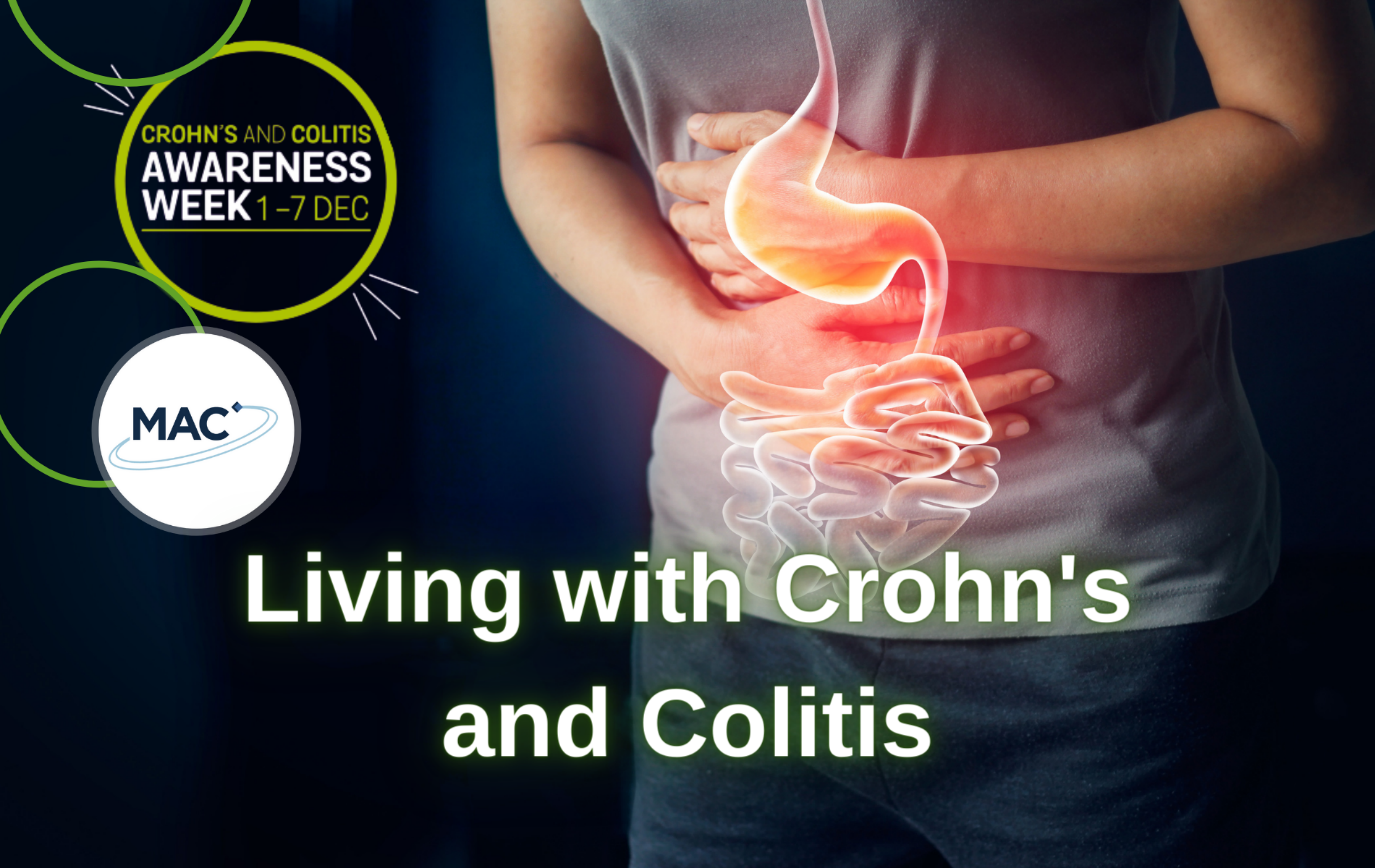This week we’re recognising Crohn’s and Colitis Awareness Week. This year, the charity behind the awareness week, Crohn’s and Colitis UK, are raising awareness about improving healthcare and access to services to providing vital information and shaping research to reducing stigma.
They are focusing on people’s stories who have been impacted by Crohn’s and Colitis to create a community: someone living with these conditions, their loved ones, doctors, nurses, and researchers. As a UK clinical trials organisation carrying out research into improved treatments for these conditions, we want to continue to raise awareness on the impact on life these conditions can have.
You can share this article using the links above and share your Crohn’s and Colitis stories for Crohn’s and Colitis Awareness Week and use the hashtag #MyStoryMatters.
Crohn’s disease is a lifelong condition where parts of the digestive system become inflamed. It can affect people of all ages and cause painful stomach cramps, weight loss and diarrhoea. The symptoms may be constant or may come and go every few weeks or months. When they come back, it’s called a flare-up.
Ulcerative colitis is also a long-term condition where the colon and the rectum become inflamed. Small ulcers can develop on the colon’s lining and can bleed and produce pus.
For people living with these conditions, their everyday lives and quality of life can be affected.
People living with Crohn’s and Colitis often need to be very careful about what they eat as certain foods could trigger flare-ups. The need to go to the toilet regularly can also be embarrassing in social situations. These conditions can also impact on other areas of life, including trying to conceive, as well as a higher risk of developing some cancers.
MAC Clinical Research understand the difficulties associated with living with Crohn’s and ulcerative colitis. MAC are looking for people living with Crohn’s and ulcerative colitis aged 18-75 and 18-80 respectively.
To find out more about MAC’s clinical trial for Crohn’s disease visit our website here.
To find out more about MAC’s clinical trial for ulcerative colitis visit our website here.




